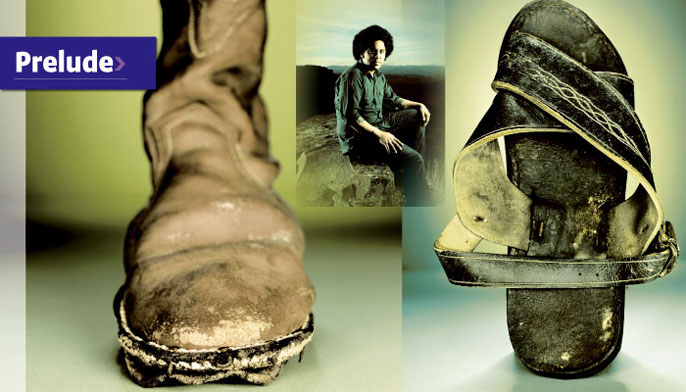
Returning to the University of Washington to join co-editor Jon Marmor on Columns has been a homecoming of sorts for me, a return to something at once familiar and new. Here is Red Square, crisscrossed by backpacks and skinny jeans. Here is the Quad, with its students nestled together under cherry trees. Here are the labs and classrooms, leaking their chalky dust.
Here are the ivory towers, tumbling down.
Gone, it seems, are the days when academia sat away from society, prognosticating from above. These days I can't help but notice how our research is becoming increasingly relevant. More human. More real. Even in the face of serious budget challenges, UW researchers, faculty and students are seeking out entrepreneurial ways of solving current problems and inventing new ways of studying age-old dilemmas.
Nowhere is that more evident than in the story of lecturer Jason De Leon's game-changing approach to studying undocumented migration. Using archaeology—a science most associate with lost cultures—he is documenting a host of issues surrounding the very real experience of modern migration from Mexico to the U.S. Young, engaged and passionate, De Leon is giving this "dusty science" a facelift unlike any seen in years.
But that is just one of the stories of ingenuity in this issue. Turn the page and there's the story of one of medicine's most lifesaving devices—the Scribner shunt—invented 50 years ago at the UW and the foundation of what made long-term dialysis possible. Turn the page again and we discover how UW researchers are on track to cure color-blindness, better detect breast cancer and diagnose intestinal cancers.
All the while, UW students are developing X PRIZEs and doing "neat things" with bacteria.
Hardly the kind of ivory tower work so many people associate with academia. The UW I find myself returning to is innovative, entrepreneurial, alive. I am lucky to be here, helping tell its stories.